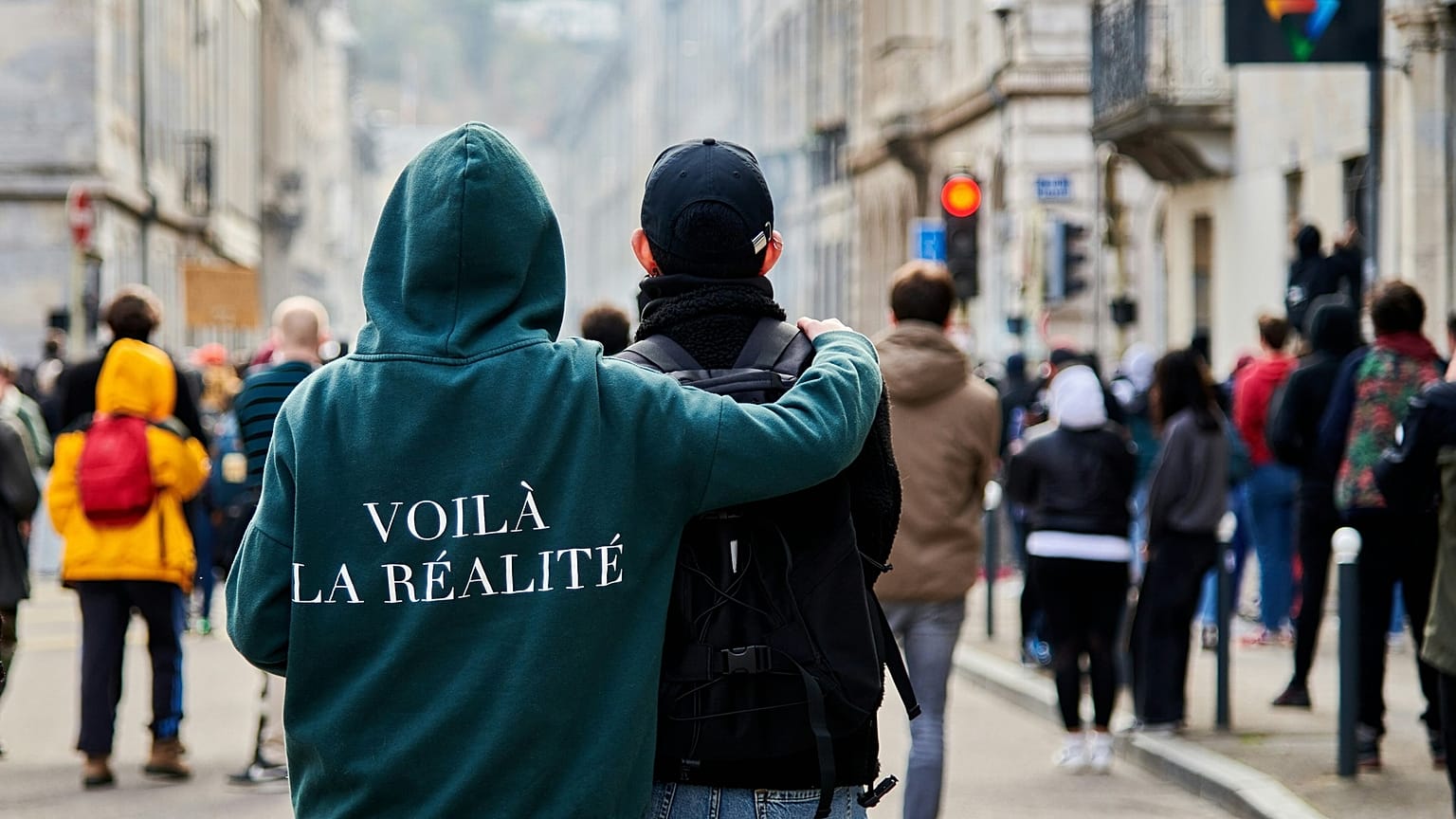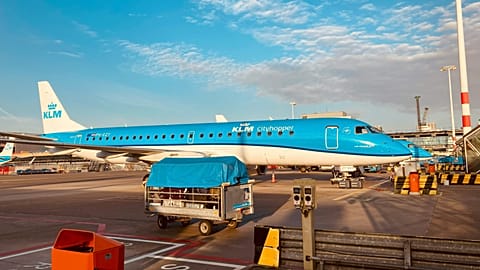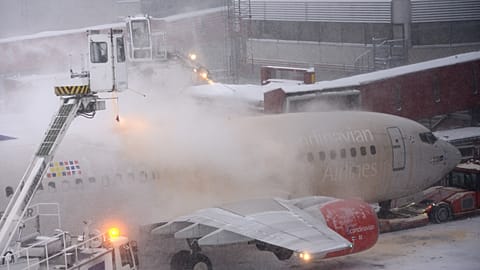Despite air traffic control unions delaying their 18 September strikes, air travel could be affected as well.
If you’re travelling to, through or from France this week, prepare for disruption.
On Thursday, 18 September, rail lines, metro systems, buses and even some of the air networks could grind to a halt as hundreds of thousands join a nationwide strike.
Road blockades and protests are already underway, as unions, political parties and grassroots movements have called for mass mobilisation today.
By midday, the outgoing interior minister, Bruno Retailleau, had cited 230 actions in public spaces, 95 attempted site blockades and around 10,000 participants, resulting in a total of 58 arrests nationwide, reports France 24.
Earlier in the day, cyclists in southern France linked up for "snail" protests, disrupting the A57 and A50 highways by forming slow-moving convoys of riders across the roads.
Some major tourist attractions, including the Arc de Triomphe and the Louvre, will be closed or be restricting access during the strikes.
Why is France striking now?
At the heart of the unrest is the government’s draft 2026 budget, which unions say imposes harsh austerity measures. The plans include a freeze on social welfare spending and potential cuts to public services. Anger over pension reform – a flashpoint since 2023, when the country raised the retirement age from 62 to 64 – has also reignited.
Unions representing workers spanning sectors from rail transport to healthcare and education are all taking part, joined by France’s main left-wing parties.
Officials expect around 400,000 people to demonstrate across the country, more than double the turnout earlier this month during the “Bloquons tout” protests.
Unlike those rallies, this week’s strike is widely coordinated, with unions encouraging workplace walkouts and public blockades.
Ongoing political turmoil has only heightened tensions.
Former prime minister François Bayrou resigned earlier this month after his government collapsed over the budget dispute. His newly named successor, Sébastien Lecornu, has already become a lightning rod for frustration, with critics accusing him of carrying forward the same Macron-era policies that sparked earlier waves of unrest.
This morning, Jean-Luc Mélenchon, leader of the leftist party France Unbowed, called for Lecornu to face a vote of confidence "as soon as possible".
How will French strikes impact travel?
With multiple major unions on strike, travellers should expect widespread delays and cancellations.
The four main unions representing workers at state-owned public transport operator RATP – CGT, FO, Unsa Mobilité and CFE-CGC – have filed strike notices. Three rail unions representing 70 per cent of staff – CGT-Cheminots, Unsa-Ferroviaire and CFDT-Cheminots – have done the same, raising the spectre of disruptions across France’s rail network.
Former transport minister Philippe Tabarot (who remains in the role until a new cabinet is announced) said around 90 per cent of high-speed TGV trains will run as normal.
Half of the Intercités services will be cancelled, however. Around 60 per cent of regional TER trains are expected to run as scheduled.
In Paris, RATP has warned of major disruption to metro lines, the regional RER commuter trains, trams and buses from 17-19 September.
The transport operator’s second-largest union expected Thursday to be "a black day" with some metro services completely suspended and others only partially running. It estimated strike participation at "90 per cent among metro drivers and 80 per cent among RER drivers".
Only metro lines 1, 4 and 14, which are automatic without a driver, will run as normal today.
RATP advises travellers to use its online planner or the Bonjour RATP app to receive real-time updates, find alternative routes and monitor crowding onboard.
Air travel may also be affected, even though France’s largest ATC union has postponed its planned strikes until early October. Smaller unions, including the FO, CFDT and CGT covering Air France, still plan to walk out this week, likely leading to disruptions to some flights.
Ground staff at airports could also strike, meaning delays at check-in and security.
The French Civil Aviation Authority (DGAC) has said delays are expected across French airports and for flights passing through French airspace, but that it has not called for any flight cancellations.
Airlines are urging passengers to check flight status before leaving for the airport.
The roads might not be much smoother for travellers, as taxi drivers, ride-hailing service workers and delivery workers are expected to join the protests.
Though no unions have yet called for mobilised action, taxi drivers have in the past operated impromptu “snail” protests. Road blockades could further limit access to airports and train stations.
Beyond transport, other sectors will be hit as well, including healthcare. An estimated nine out of ten pharmacies are expected to close itoday, with only limited emergency cover where ordered by local authorities.
French tourist attractions close temporarily during strikes
Museums and monuments across France are planning closures or limited access during the strikes.
The Arc de Triomphe closed on Wednesday in preparation. “Due to strike action, the monument is exceptionally closed today,” the website states. It remains closed today as well. Those with e-tickets will receive a refund.
The Louvre, which saw its opening delayed on Tuesday as union workers led a spontaneous walkout, has warned visitors of potential disruptions. Louvre officials have already closed the off-site Eugène Delacroix Museum for the day.
Versailles, however, has elected to keep its château and grounds open.
Visitors are recommended to check official websites for any updates.


















